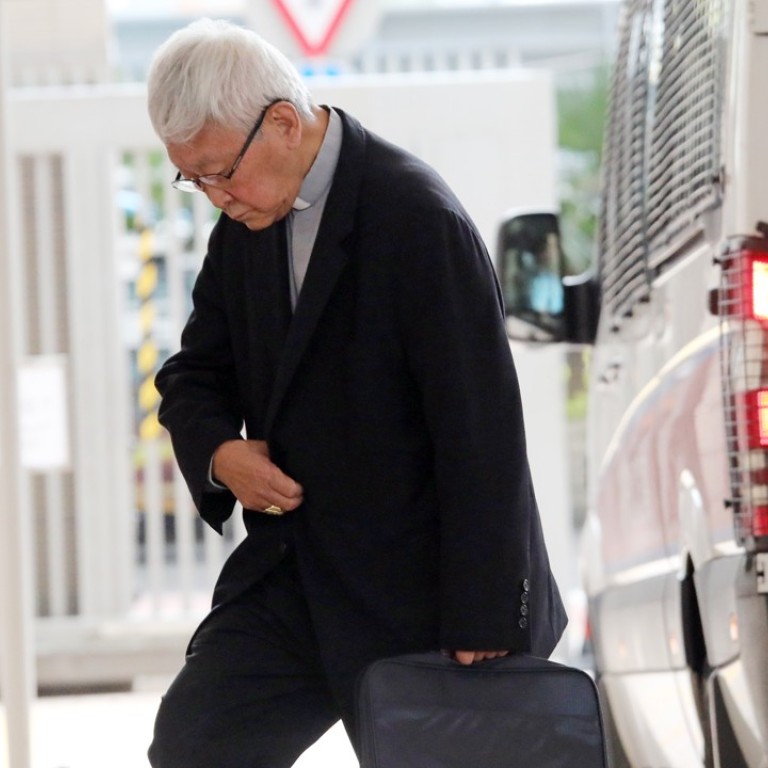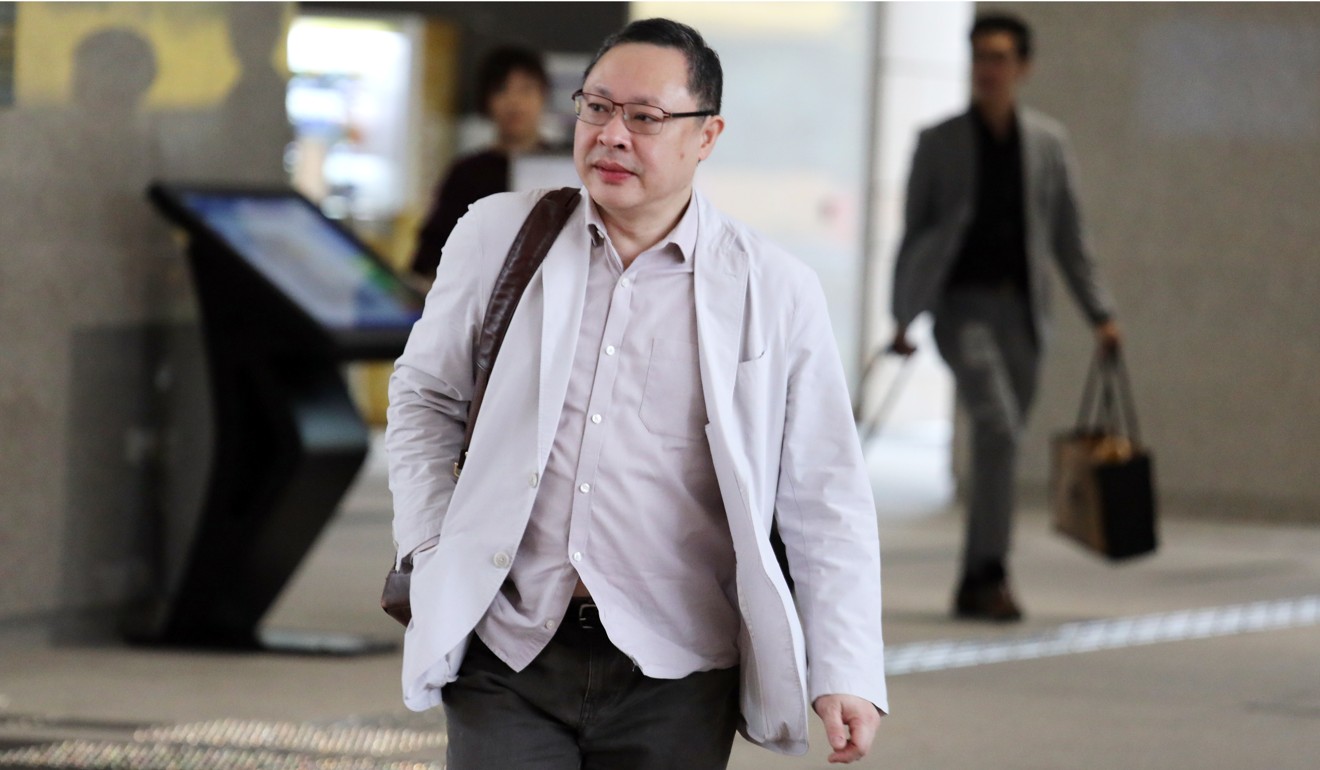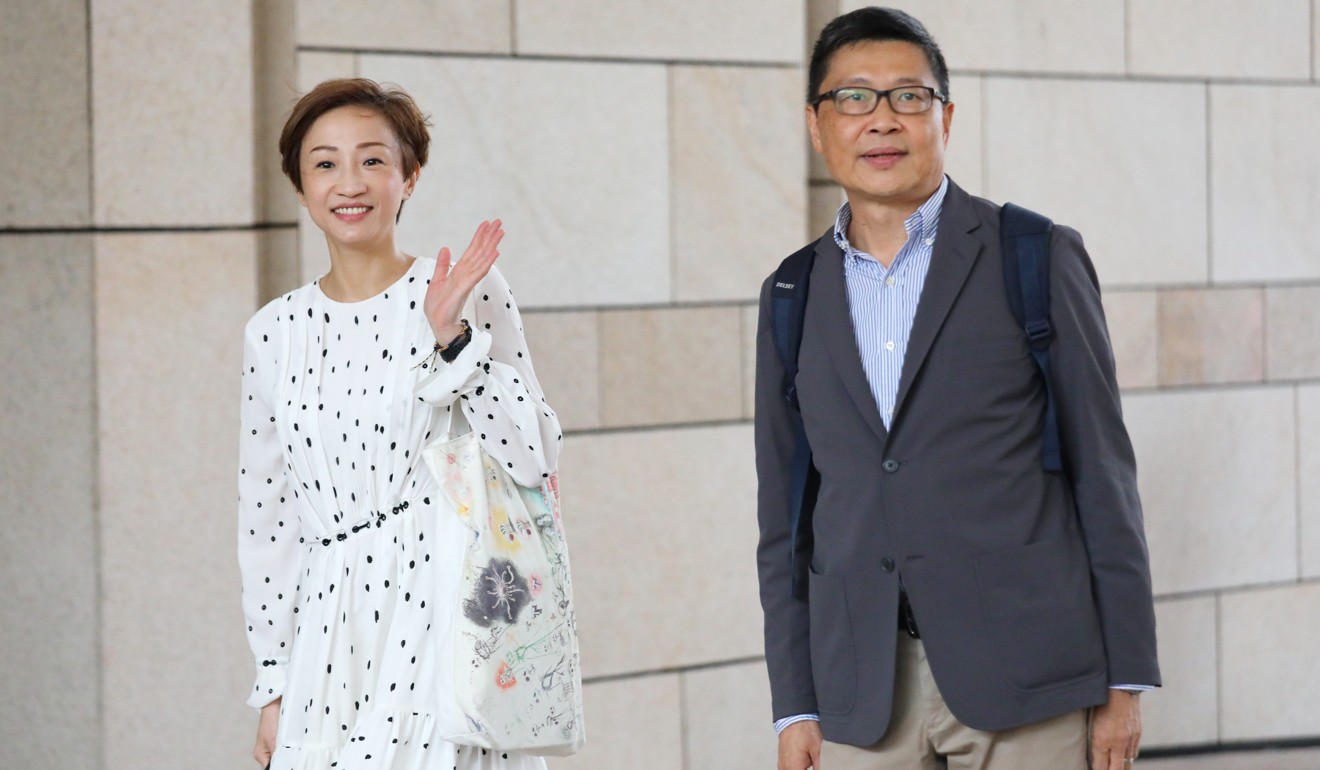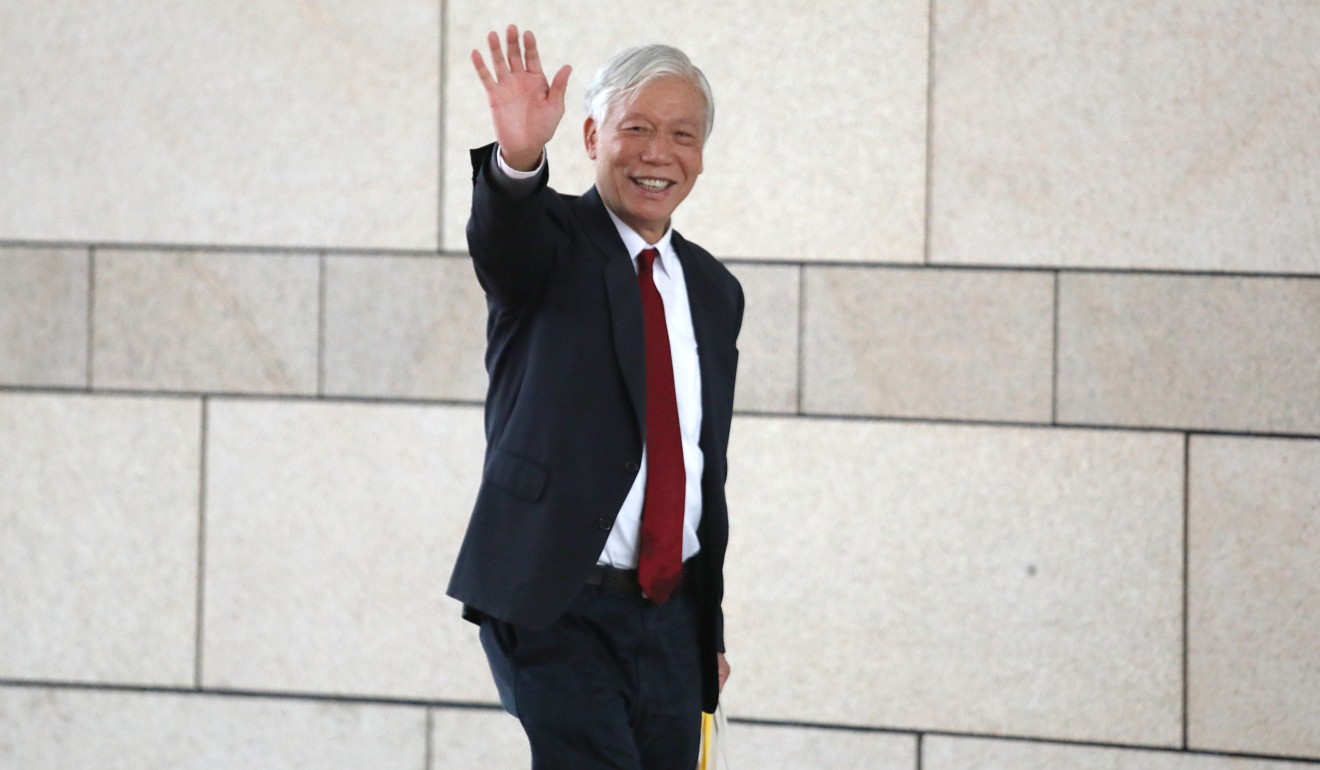
Cardinal Joseph Zen defends Hong Kong Occupy leaders in court, praising them for preaching peace
- He also voices disapproval of police use of tear gas, recalling worries about situation escalating
- Echoes founders’ claim they lost control of 2014 movement to student leaders
An influential figure of Hong Kong’s Catholic Church defended founders of the 2014 Occupy protests in court on Wednesday, saying the civil disobedience movement would have been violent without their message of peace.
Cardinal Joseph Zen Ze-kiun said he was present on September 28, 2014, the first day of the movement for greater democracy, when police fired tear gas at protesters. It was one of the most chaotic scenes of the 79-day event that brought parts of the city to a standstill.
Zen said he was worried the “unwise” move by police would antagonise the crowd and escalate the situation. He recalled waking up the next morning to find the protest site was peaceful and activists were actually thanking officers for their efforts.
Occupy founder tearfully describes break with movement at trial
“We passed that night peacefully. It was because the Occupy trio took a whole year to advocate that [people] should occupy peacefully and with love,” he said, referring to Dr Chan Kin-man, Benny Tai Yiu-ting, and Reverend Chu Yiu-ming.
It was because the Occupy trio took a whole year to advocate that [people] should occupy peacefully and with love
Zen, a retired bishop who led the city’s Catholic Church from 2002 and 2009, was called to the witness box on Wednesday at West Kowloon Court, where the three founders are facing a string of public nuisance charges alongside six other leaders.
He said the Occupy movement won backing from Catholics in the legal sector because they agreed it was “relatively mild” compared with the “vigorous action” protesters could have taken.
Prosecutors said the trio had incited the public to join what was also later known as the “umbrella movement” that saw massive crowds take to the streets to block the city’s busiest thoroughfares.
Protesters were opposing a restrictive proposal handed down by Beijing for the city’s leadership election. Chan, Tai and Chu were accused of mobilising the crowd to force the government to respond to their demands.
The trial over the past two weeks centred on establishing the roles of the three in the movement, but Zen painted a different picture on Wednesday.
He said while the trio started Occupy, they were later marginalised by student leaders, who were also major players at the time.
Student leaders did not want Occupy trio at their protest, court told
“It seemed the students had leadership but they could not control the situation,” he said.
“It seemed that the Occupy trio did not have the opportunity to give advice,” Zen added, pointing out that this worried them a lot.
He described the three as very devout Catholics, who would invite him to pray with them for the safety of protesters, as the movement wore on.

The 86-year-old also took the opportunity to criticise a police decision to unleash – as heard in court – 87 rounds of tear gas on protesters at the onset.
“I think the firing of tear gas was very unwise because the effect would further anger people and I was afraid the crowd would get out of control,” he said in a brief testimony.

Tai, 54, Chan, 59, and Chu, 74, have each denied three joint counts: one of conspiracy to cause public nuisance; one of inciting others to cause public nuisance; and one of inciting people to incite others to cause public nuisance.
The six others include legislators Tanya Chan, 47, and Shiu Ka-chun, 49, former student leaders Tommy Cheung Sau-yin, 24, and Eason Chung Yiu-wa, 26, and Raphael Wong Ho-ming, 30, vice-chairman of the League of Social Democrats, all of whom face – and have denied – the two incitement charges.

Former Democratic Party lawmaker Lee Wing-tat, 63, has denied one count of incitement to commit public nuisance.
The trial continues before Judge Johnny Chan Jong-herng.

